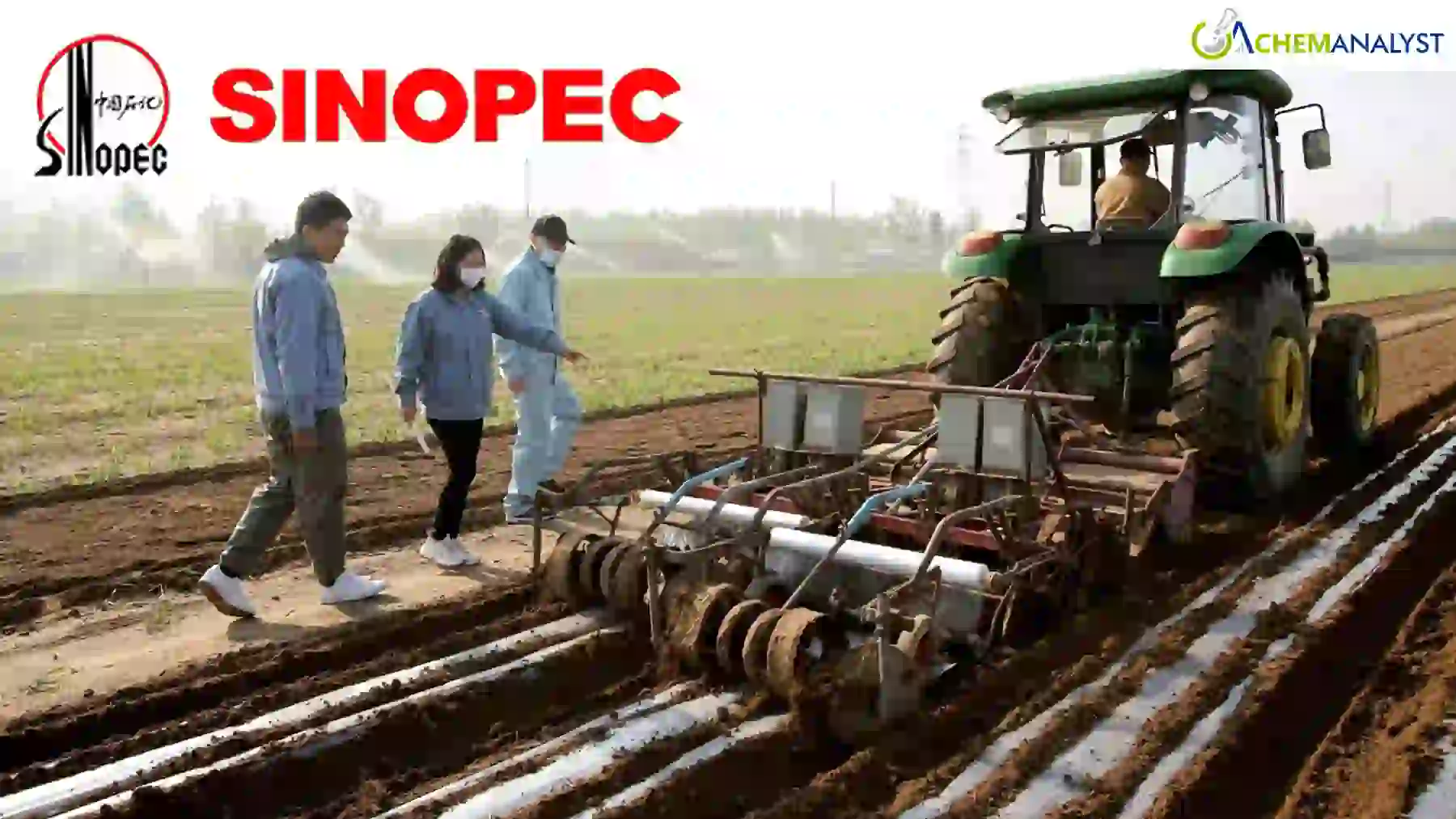Welcome To ChemAnalyst

Sinopec’s PBST biodegradable mulch film boosts Xinjiang cotton yields, cuts pollution, degrades naturally, and offers a scalable, eco-friendly solution for sustainable agriculture.
Sinopec (China Petroleum & Chemical Corporation) has announced promising outcomes from a major pilot program using its independently developed PBST (polybutylene succinate-co-terephthalate) fully biodegradable mulch film in the cotton-growing region of Wusu, located in the Xinjiang Uygur Autonomous Region. The initiative marks a significant step forward in addressing China’s longstanding agricultural film-residue problem while ensuring stable cotton productivity.
This PBST mulch film, developed under Sinopec’s proprietary intellectual property, demonstrated near-equivalent cotton yields compared with farmlands covered with conventional polyethylene (PE) mulch film. Evaluations during and after the planting cycle confirmed that PBST delivered the intended degradation timeline and performed effectively in conserving soil moisture and heat, two critical factors for cotton cultivation. The successful performance of the material indicates that PBST can serve as a practical solution to agricultural plastic pollution, achieving both ecological restoration and economic stability while advancing green and sustainable farming practices.
Xinjiang, as one of China’s most important cotton-producing regions, has historically relied on PE mulch films to maintain soil humidity and enhance soil temperature. However, PE films are extremely difficult to degrade naturally and have accumulated over decades, causing severe “white pollution” in farmlands. While other biodegradable options like PBAT exist, they tend to lose weather resistance too quickly. PBAT-based films often degrade before the cotton boll formation phase, resulting in insufficient moisture retention and temperature stability, which can negatively impact crop growth and reduce yields.
PBST, on the other hand, offers superior UV resistance and enhanced moisture-barrier performance compared with many existing biodegradable materials. Long-term trials across multiple provinces and crop types have shown that PBST can completely degrade within one to three years, breaking down into non-toxic substances without leaving persistent residues behind.
To accelerate the adoption of PBST, Sinopec has been strengthening research, production, and field application efforts. Earlier this year, the company brought online the world’s first industrial-scale PBST facility with an annual capacity of 60,000 tons at its Hainan Refining & Chemical complex. In April, Sinopec collaborated with local agricultural departments in Xinjiang, along with Liaoning Dongsheng Group, to launch its first major PBST mulch film demonstration program. More than ten thousand mu of cotton fields across Wusu City and Kuitun City were planted using PBST mulch in a coordinated effort involving production, sales, and R&D teams.
By October, independent assessments confirmed that the cotton yields from PBST-covered fields matched those of fields using PE film, while also showing a significantly faster degradation rate. Importantly, PBST mulch film naturally decomposes into water, carbon dioxide, and mineral components without requiring manual removal. This not only satisfies the agronomic needs of Xinjiang’s cotton production but also reduces operational costs, eliminates long-term soil contamination caused by PE residues, and presents clear environmental and financial advantages. Sinopec’s pilot demonstrates a scalable path forward for reducing agricultural plastic pollution and advancing sustainable agricultural development throughout Xinjiang.
We use cookies to deliver the best possible experience on our website. To learn more, visit our Privacy Policy. By continuing to use this site or by closing this box, you consent to our use of cookies. More info.
